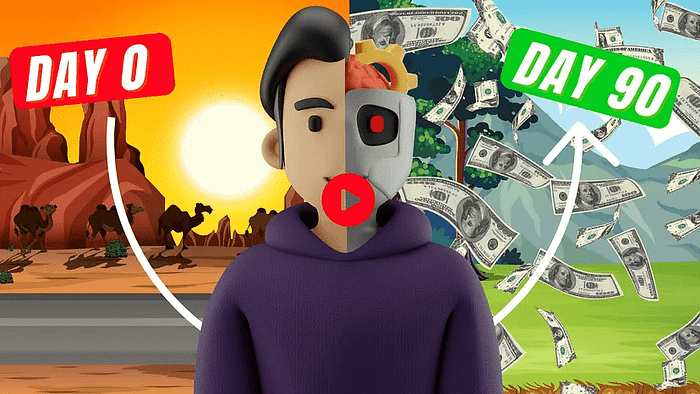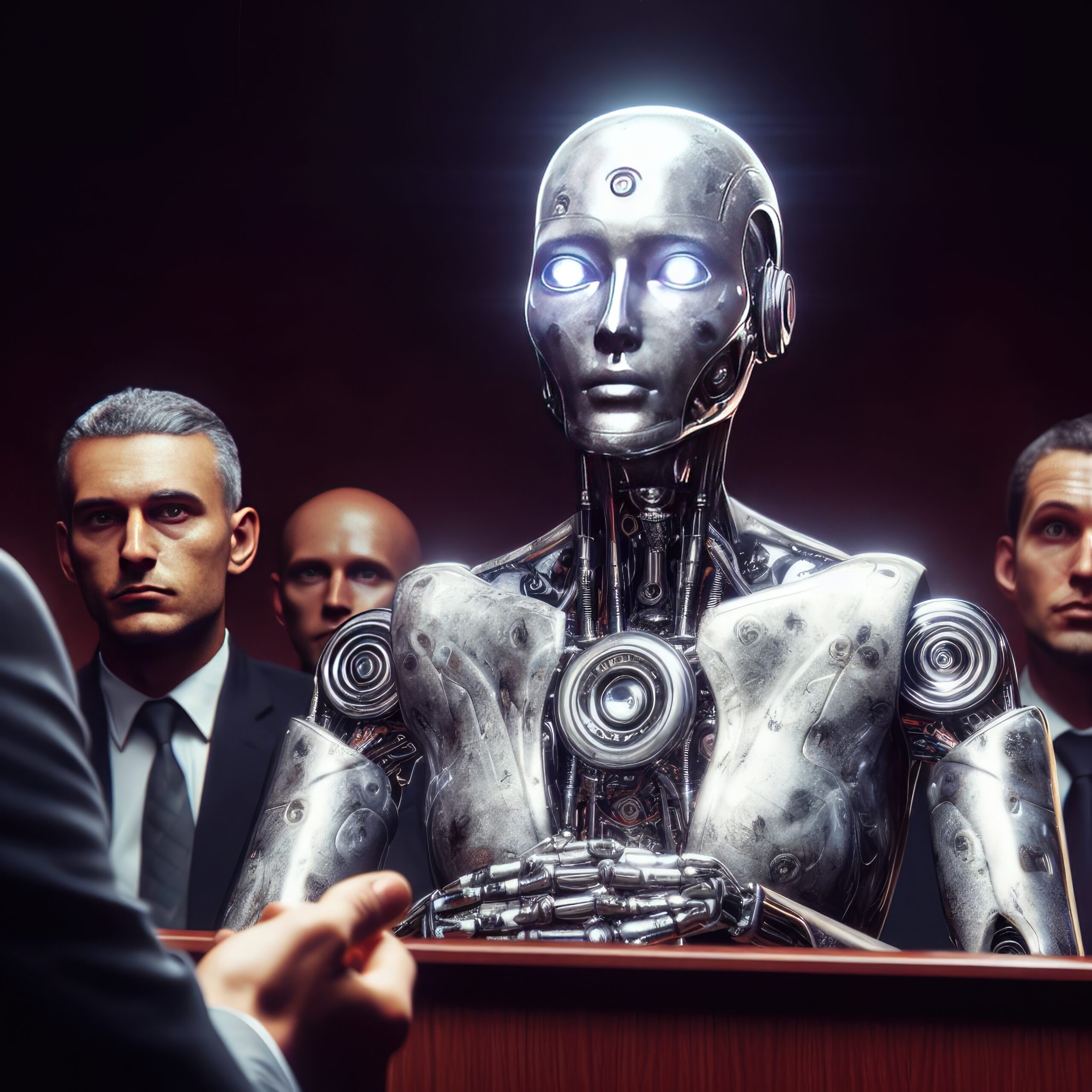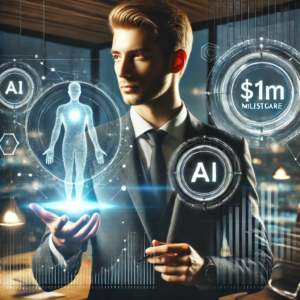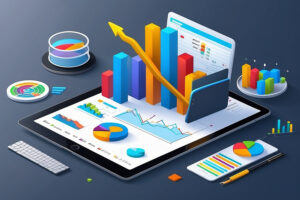Why Your Work Life Will Be Unrecognizable: The Future of Work Is Already Here
Standing at the intersection of tradition and innovation, you might feel the ground shifting beneath your feet. The future of work isn’t a distant concept anymore – it’s actively reshaping our professional landscape in ways that challenge every assumption we’ve held about careers, success, and fulfillment. This transformation isn’t just changing how we work; it’s fundamentally altering what it means to work in the modern world.
Let me share a personal revelation that recently crystallized this reality for me. Three weeks ago, I encountered something that perfectly encapsulated the seismic shift occurring in our professional landscape. A familiar store I’d visited countless times had undergone a subtle yet profound transformation. The once-bustling checkout lanes, typically staffed by friendly faces, had been replaced by a row of sleek self-checkout machines, with just one employee overseeing the entire operation. This small change represented something much larger – a glimpse into how the future of work is quietly but inexorably reshaping our world.
We strongly recommend that you check out our guide on how to take advantage of AI in today’s passive income economy.
Table of Contents
The Great Transformation: Understanding Our Work Evolution
The magnitude of change we’re experiencing surpasses simple technological advancement. The future of work represents a fundamental reimagining of employment itself. This transformation reaches far beyond job displacement – it’s reconstructing the very foundation of how we define productivity, success, and professional identity in the modern era.
To truly comprehend where the future of work is leading us, we must first understand our journey through time. Our relationship with work has evolved dramatically throughout human history, each era bringing its own revolutionary changes to how we approach labor and productivity. This historical perspective provides crucial insights into our current transformation.
The Historical Context: From Hunter-Gatherers to Modern Workers
Fifty thousand years ago, our ancestors experienced work in a fundamentally different way. For them, survival and community were inseparable from daily tasks – there was no distinction between work and life itself. Every activity, from hunting to gathering, from tool-making to childcare, was integrated into a holistic lifestyle that prioritized community survival and cultural continuity.
The agricultural revolution marked humanity’s first major shift in the future of work. As we settled into farming communities, our relationship with work became intimately tied to the land and seasons. Families worked together during harvests, sharing both the burden and rewards of their labor. This period maintained a strong sense of community while introducing new concepts of property and seasonal work patterns that would shape human society for millennia.
The Medieval Perspective: Challenging Modern Assumptions
Research into medieval work patterns reveals surprising insights that challenge our modern assumptions about productivity and work-life balance. Medieval peasants, while working intensively during certain periods, enjoyed approximately 150 days off annually for religious observances and community celebrations. According to Boston College economist Juliet Shore’s groundbreaking research, the average medieval peasant worked fewer hours annually than today’s American worker – a fact that raises intriguing questions about our modern approach to work hours and productivity.
The distinction between work and leisure was less rigid in medieval times, with agricultural labor following natural rhythms of daylight and seasons. This natural integration of work and life stands in stark contrast to our modern rigid scheduling and artificial workplace environments. Understanding this historical context helps us question whether our current work structures truly represent the most effective or humane approach to labor.
The Industrial Revolution: Birth of the Modern Workday
The 19th century marked another pivotal moment in the future of work, fundamentally altering not just how we worked, but where and when we worked. The introduction of power looms and other mechanical innovations transformed craft-based production into industrial manufacturing, leading to unprecedented changes in work organization and social structures.
Frederick Taylor’s introduction of Scientific Management principles marked a significant shift in how work was organized and evaluated. This system, while increasing efficiency, also led to the compartmentalization of tasks and the separation of planning from execution – a legacy that continues to influence modern workplace organization, though not always positively.
The Standardization of Time and Labor
The standardization of the workweek represents perhaps the most significant development in modern work history. The 40-hour, five-day workweek, first implemented by Henry Ford in 1926, became the template for how we structure our professional lives. This framework, which we now take for granted, is barely a century old – a mere blip in human history. Yet it has profoundly shaped our understanding of work, leisure, and productivity.
The Digital Revolution: Unprecedented Acceleration
The future of work is now evolving at an unprecedented pace, driven by technological advancements that are reshaping industries faster than ever before. Artificial intelligence isn’t just automating tasks; it’s augmenting human capabilities in ways previously confined to science fiction. The computing power in our pockets exceeds what was available to entire organizations just decades ago, fundamentally changing how we approach problem-solving and creativity in the workplace.
The AI Integration Challenge: A New Paradigm
Recent research from the International Monetary Fund reveals that approximately 40% of global jobs are exposed to AI influence, with this figure rising to 60% in advanced economies. However, this exposure doesn’t necessarily mean replacement – many roles will be enhanced rather than eliminated by AI technology. The future of work lies in understanding the distinction between tasks that AI can automate and those that require human judgment, creativity, and emotional intelligence.
The Transformation of Value and Time
Perhaps the most revolutionary aspect of the future of work is the decoupling of time from value. Traditional models of compensation based on hours worked are becoming increasingly obsolete in many industries. Instead, value is increasingly measured by impact and outcomes rather than time invested. This shift represents a fundamental change in how we think about productivity and compensation.
The New Professional Landscape
The future of work demands a fundamental shift in how we approach learning and skill development. Traditional career paths, where mastering a single skill guaranteed lifetime employment, are becoming obsolete. Instead, continuous learning and adaptation have become essential survival skills in the modern workplace. This shift requires a new mindset – one that embraces change and sees learning as a lifelong journey rather than a finite process.
The Human Element in an Automated World
As automation and AI continue to reshape the workplace, the uniquely human aspects of work become increasingly valuable. Emotional intelligence, creative problem-solving, and the ability to navigate complex social situations are becoming premium skills in the future of work. These capabilities, which cannot be easily replicated by machines, represent the new frontier of professional development.
The Evolution of Workplace Culture
The future of work is also transforming workplace culture and organizational structures. Traditional hierarchies are giving way to more flexible, project-based arrangements. Remote work, once considered an exception, is becoming increasingly normalized, leading to new challenges and opportunities in how we build and maintain professional relationships and company culture.
Preparing for Tomorrow’s Workplace
Success in the future of work requires a proactive approach to skill development and career management. This means developing capabilities that complement rather than compete with AI, while maintaining the flexibility to adapt as technology continues to evolve. The emphasis is increasingly on developing portable skills that maintain their value across different roles and industries.
The Role of Education and Training
Traditional education systems are struggling to keep pace with the rapidly changing demands of the future of work. This has led to the rise of alternative education models, including micro-credentials, bootcamps, and continuous learning platforms. The future of professional development lies in more agile, responsive approaches to skill acquisition and knowledge updating.
The Ethical Dimensions
The transformation of work raises important ethical questions about the distribution of opportunity and the responsibility of organizations and society to support workers through this transition. The future of work must address issues of equity, access to training and development opportunities, and the potential widening of economic disparities.
Building Resilient Careers
Success in the future of work requires developing career resilience – the ability to adapt and thrive in changing circumstances. This involves building diverse skill sets, maintaining strong professional networks, and developing the emotional intelligence to navigate uncertainty and change effectively.
Conclusion: Embracing the Future
The future of work isn’t just about technological change – it’s about reimagining our relationship with professional life. As we stand at this pivotal moment, the choices we make today will shape not just our individual careers but the very nature of work itself. The opportunity lies in embracing these changes while ensuring that the human element remains central to our professional evolution.
This transformation presents both challenges and opportunities. Those who approach it with curiosity, adaptability, and a willingness to learn will find themselves best positioned to thrive in the emerging professional landscape. The future of work is not something that’s happening to us – it’s something we actively shape through our choices and actions today.

We strongly recommend that you check out our guide on how to take advantage of AI in today’s passive income economy.




